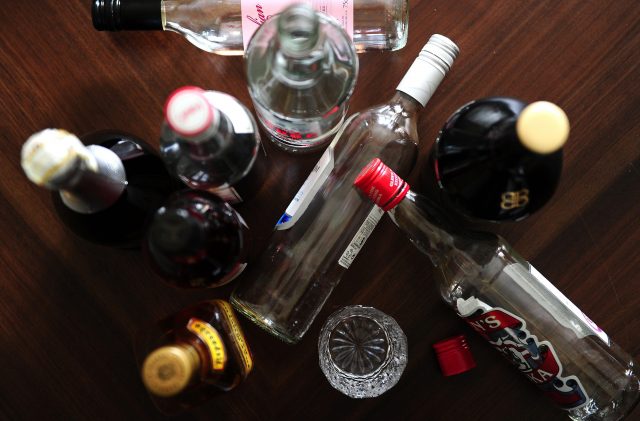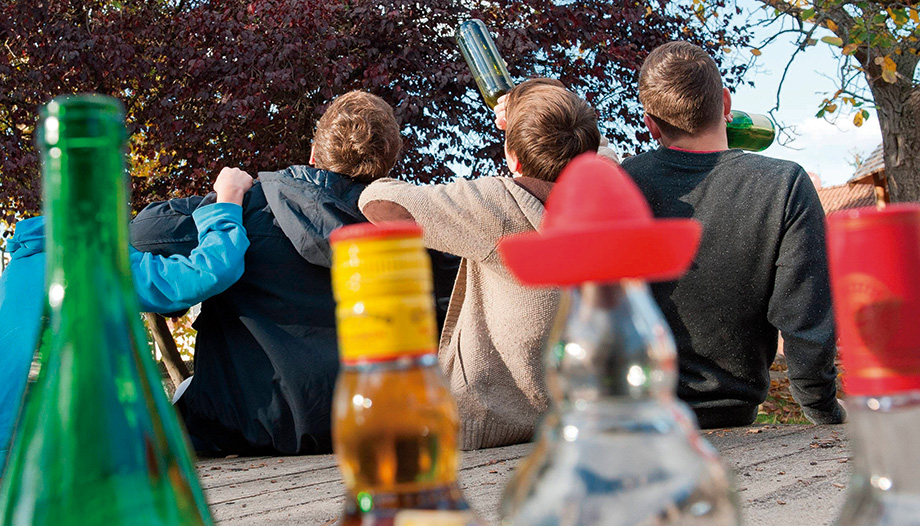Alcohol is the main drug present in our environment, the one that produces the most deaths, with a pathological character for individuals and families, writes Sanz Gonzalez. We commonly make the mistake of diagnosing as an alcoholic the person whose body already shows physical signs of the influence of alcohol; an erroneous fact, since in the initial stages of alcoholism the body does not yet show the after-effects of its consumption, says Schüller.
The average age of onset of drug use among Spanish adolescents has increased throughout the economic crisis, between 2009 and 2014, while the usual trend in recent years has been reversed and they now start consuming alcohol earlier than tobacco. This is according to the final evaluation of the National Drug Strategy 2009-2016 presented by the Ministry of Health at the beginning of the summer, which shows that the starting age for alcohol consumption has risen slightly, from 13.7 to 13.8 years on average, while the starting age for tobacco consumption has risen from 13.3 to 13.9 in the same period.
Youth consumption
We must consider that the etiology of alcoholism involves a wide range of different factors, some of which are specific to the individual and others environmental; factors such as personality, degree of maturity, family environment, group leaders at school level, have a decisive influence on the development of this addiction to alcohol.

In this article we intend to focus on consumption from a youth and initiation perspective, more educational and preventive, and centered on social and individual factors. For many young people, alcohol consumption is an ephemeral experience, caused by curiosity, the attraction of the unknown and peer pressure. We can speak for a majority of young people that their consumption is centered around a recreational intake where alcohol is one more element with which to establish relationships.
The set of characterological variables of the individual must also be taken into account for a possible inclination to consume. We have been able to observe how high degrees of anxiety -The fact that they cannot be properly regulated by young people encourages abusive alcohol consumption, especially on weekends.
Insecurities, uncertainties
The world of youth may appear carefree, happiness without limits, a world full of possibilities..., but many teachers and many parents discover in a greater proportion that what lies behind this mask of happiness is a world full of insecurities and uncertainties.
This unregulated tension requires a series of breaths, moments where reality becomes kinder and more tolerable. The young person knows, discovers, that alcohol facilitates this extra time to be able to see things from a different perspective.
Another relevant aspect in the consumption of alcohol is the capacity to dampen the frustration to personal demands. We know that young people operate in a very competitive universe where patterns of comparison are very active; social networks that score our acceptance at the minute, "virtual friends group". where the young person fears acceptance or rejection as something beyond his or her control...
Shyness, lack of security, is another of the characterological variables that we must take into account in the integral formation of the adolescent. Alcohol provides us with a kinder vision of our qualities and makes us show ourselves to the world in a more relaxed and friendly way.
All young people struggle for acceptance, and shyness is an obstacle that is often seen as something immutable. This apparently harsh and unfair reality that the young person makes of his possibilities leads him to look for an intermediary to mitigate a reality of his life that has not been accepted. The first step would be a real knowledge of consumption, secondly the acceptance of his limitations in the field of relationships with others, and finally, to facilitate substitution activities where the young person can perceive that he can overcome himself.
Parental passivity
In the last 20 years, a pattern of parents who are not willing to complicate their lives in order not to confront their children has been accentuated in Spain. The educational community has been warning of a passivity in the obligations as a parent to ensure the health of the children and a forgetfulness of the "regulatory necessity" necessary for the education of young people.
One of the most common shortcomings of young people is the lack of security and self-confidence due to the lack of a normative framework that prepares them for adult life. And along the same lines, overprotection is another phenomenon that needs to be studied. The needs of today's market force many parents to be absent from the family and away from home. Children lack reference figures because these do not exist and the affective attachment relationships deteriorate. Affection needs concrete manifestations; if these do not exist, the young person will replace them with other relationships that meet his or her demands. Therefore, we are in a moment in which we have to substitute the "anything goes" by the "all together".
Personalized education
We cannot overlook another variable, another factor, which is an enabler of consumption. A family environment The family perspective, where one of the members of the family is already dependent on alcohol consumption.
In view of the above deficiencies that adolescents show as they grow up, we believe it is appropriate to highlight the value of a personalized education. Not all people react and act in the same way, and therefore alcohol dependence and alcohol consumption will vary according to each person's way of being.
The most intentional aspects in the formation of young people require aspects that cannot be overlooked, such as: highlighting the uniqueness of the person, facilitating self-knowledge, fostering physical and intellectual development, promoting values that enable personal dedication, marking out and outlining a personal life project, educating in freedom, giving depth to life by cultivating interiority and a sense of transcendence, free time as an opportunity to continue growing, a sense of solidarity in life... In short, awakening in young people a desire to live and live to the fullest.
Counselor. Doctor in Psychology









